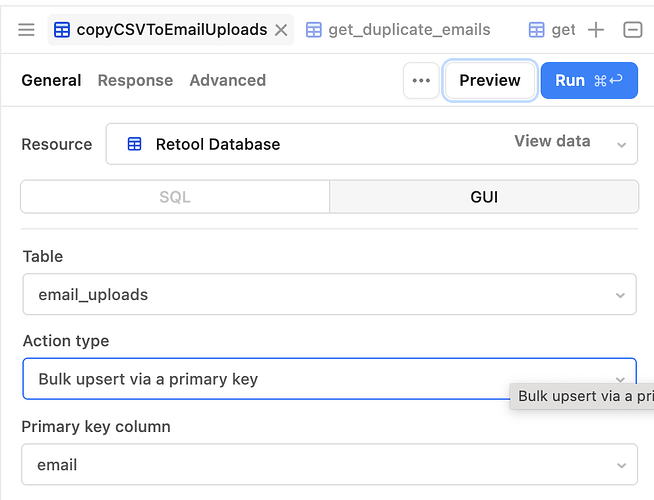-
Goal: When I run a query that uses the GUI mode to Bulk Upsert a few hundred to 1000s of items, I expect ONE single query going to Postgres.
-
How it works today: When I execute a Bulk Upsert of an array of JS objects using GUI mode, I get at least one query hitting Postgres per object. The Retool query times out after 120s. I am refreshing a query in Postgres during the operation:
SELECT now() - query_start, query, *
FROM pg_stat_activity
where datname = 'retool' and state = 'active'
ORDER BY query_start desc;
And I can see the query from retool toggling between INSERT and UPDATE, and each one lasts a fraction of a second. I would expect one long query (Using INSERT ON CONFLICT or MERGE) instead.
-
Steps:
-
Get a big array of JS objects (I'm using a CSV file upload and parsedValue[0]).
-
Run a bulk upsert query with primary key
-
Run the query
-
Witness a Timeout
-
During the query run pg_stat_activity and see multiple separate queries instead of one
- Details:
Array of data looks like:
[
{
"email": "something@example.com"
},
{
"email": "another@example.com"
}
]
Getting Timed Out After 120,000ms


